|
When Zafera goes to school for the first time, all the children laugh and tease. But, Zafera does not understand so she just smiles. A beautiful story about shining bright no matter what, because our differences are our greatest gifts. And if you do, others will eventually see. Zafera is a beautiful little girl, yet she often has dirt on her hands and twigs in her hair. When Zafera goes to school for the first time, all the children stare and tease. Find out how she becomes the most popular girl in school! Read a review by Jill Martin:
As an emergency room doctor working on the rapid evaluation unit, Dr. Thomas Fisher has about three minutes to spend with the patients who come into the South Side of Chicago ward where he works before directing them to the next stage of their care. Bleeding: three minutes. Untreated wound that becomes life-threatening: three minutes. Kidney failure: three minutes. He examines his patients inside and out, touches their bodies, comforts and consoles them, and holds their hands on what is often the worst day of their lives. Like them, he grew up on the South Side; this is his community and he grinds day in and day out to heal them. Through twenty years of clinical practice, time as a White House fellow, and work as a healthcare entrepreneur, Dr. Fisher has seen firsthand how our country's healthcare system can reflect the worst of society: treating the poor as expendable in order to provide top-notch care to a few. In The Emergency, Fisher brings us through his shift, as he works with limited time and resources to treat incoming patients. And when he goes home, he remains haunted by what he sees throughout his day. The brutal wait times, the disconnect between hospital executives and policymakers and the people they're supposed to serve, and the inaccessible solutions that could help his patients. To cope with the relentless onslaught exacerbated by the pandemic, Fisher begins writing letters to patients and colleagues--letters he will never send--explaining it all to them as best he can. As fast-paced as an ER shift, The Emergency has all the elements that make doctors' stories so compelling--the high stakes, the fascinating science and practice of medicine, the deep and fraught interactions between patients and doctors, the persistent contemplation of mortality. And, with the rare dual perspective of somebody who also has his hands deep in policy work, Fisher connects these human stories to the sometimes-cruel machinery of care. Beautifully written, vulnerable and deeply empathetic, The Emergency is a call for reform that offers a fresh vision of health care as a foundation of social justice. Read a review by Ann Reeves:
Lena is a wife and mother who farms alongside her husband in the tranquil countryside. Her faith has always been her compass, but can she remain steadfast when the questions grow increasingly complex and the answers could mean the difference between life and death? Lena's daughter Ans has recently moved to the bustling city of Leiden, filled with romantic notions of a new job and a young Dutch police officer. But when she is drawn into Resistance work, her idealism collides with the dangerous reality that comes with fighting the enemy. Miriam is a young Jewish violinist who immigrated for the safety she thought Holland would offer. She finds love in her new country, but as her family settles in Leiden, the events that follow will test them in ways she could never have imagined. The Nazi invasion propels these women onto paths that cross in unexpected, sometimes-heartbreaking ways. Yet the story that unfolds illuminates the surprising endurance of the human spirit and the power of faith and love to carry us through. Read a review by Debra Blunier:
A colorful portrait of Deborah Read Franklin and the women who together clothed, fed, supported, nursed, and defended her husband, the original “self-made man.” We can’t seem to get enough of Ben Franklin—a man so confident in his own immortality that he tempted lightning to strike the same place twice. We know all about the key and the kite, the post offices, the libraries, the bifocals, the fire departments, and the almanacs. But what of the woman who raised his children, ran his businesses, built his house, and fought off angry mobs at gunpoint while he traipsed about England? Or, of the widow who Ben lived with in London for many years? Or, of the many other women who contributed to Ben’s life? Little interest has been paid to these women—most notably Deborah Read Franklin, Ben’s common-law wife and partner for forty-four years. Historians have described her as a “servile rather than…active contributor” to Franklin’s success, “a woman unlikely to accompany his restless mind,” or simply “neither educated nor interesting.” She has been relegated to the role of shrew, nag, and footnoted antagonist to a “great man’s” life. But, as Nancy Rubin Stuart’s account proves, Deborah’s life and the lives of other romantic acquaintances throughout Ben’s life were as complex and compelling as any. Using letters between Deborah and Ben and between Ben and his paramours, Stuart tells the tale of unassuming yet feisty, colonial woman who supported and cared for Ben throughout his life. What emerges is a colorful, poignant portrait of woman erased in history who, in the midst of their own struggles, ultimately achieve an independence rarely enjoyed by women of their time. Read a review by Ann Reeves:
In a display case in the Smithsonian’s National Museum of African American History and Culture sits a rough cotton bag, called Ashley’s Sack, embroidered with just a handful of words that evoke a sweeping family story of loss and of love, passed down through generations. In 1850s South Carolina, an enslaved woman named Rose gave this sack filled with a few precious items to her daughter, Ashley, as a token of love and to try to ensure Ashley’s survival as well. Soon after, the nine-year-old girl was separated from her mother and sold. Decades later, Ashley’s granddaughter Ruth embroidered this family history on the bag in spare yet haunting language—including Rose’s wish that “It be filled with my Love always.” Now, in this illuminating, deeply moving new book inspired by Rose’s gift to Ashley, historian Tiya Miles carefully unearths these women’s faint presence in archival records and draws on objects and art, to follow the paths of their lives—and the lives of so many women like them—in a singular and revelatory history of the experience of slavery, and the uncertain freedom afterward, in the United States. All That She Carried is a poignant story of resilience and of love passed down through generations of women against steep odds. It honors the creativity and fierce resourcefulness of people who preserved family ties even when official systems refused to do so. Read a review by Joan Herron:
In the quaint island village of Eastport, Maine, Jacobia “Jake” Tiptree and Ellie White run the Chocolate Moose bakery, where delicious treats take the spotlight—but murder sometimes gets a walk-on role . . . Jake and Ellie are taking a break from perfecting their chocolate pizza recipe to cater a housewarming party hosted by movie icon Ingrid Merryfield. Miss Merryfield is famous for her old-Hollywood glamour. Her new home, Cliff House, has a reputation too—for being haunted. But she isn’t concerned, and some of her guests even try to summon a spirit during the party, using a Ouija board. What arrives instead is a freak autumn storm that downs an ancient tree, trapping everyone on the property and setting the stage for a killer’s planned spree. Though Jake and Ellie don’t intend to get stirred into the mix, there’s no avoiding it—especially when they witness one of the guests being shoved over the very precipice that gave Cliff House its forbidding name. Jake and Ellie begin sifting through suspects and motives, a search that takes them from a long-lost family graveyard to a wise old herbalist’s deceptively-sweet cottage and finally to Cliff House’s overgrown gardens. Is there some ghostly presence involved—or a flesh-and-blood villain? And either way, can they ensure that they avoid meeting their very own, very permanent Hollywood ending? Read a review by Ann Reeves:
Molly and her mom don't always have enough food, so one Saturday they visit their local food pantry. Molly's happy to get food to eat until she sees her classmate Caitlin, who's embarrassed to be at the food pantry. Can Molly help Caitlin realize that everyone needs help sometimes? Read a review by Gennifer King:
From the New York Times bestselling author of Ghosted comes a love story wrapped in a mystery: an up-all-night page-turner with a dark secret at its core I have held you at night for ten years and I didn't even know your name. We have a child together. A dog, a house. Who are you? Emma loves her husband Leo and their young daughter Ruby: she’d do anything for them. But almost everything she's told them about herself is a lie. And she might just have got away with it, if it weren’t for her husband’s job. Leo is an obituary writer; Emma a well-known marine biologist. When she suffers a serious illness, Leo copes by doing what he knows best – researching and writing about his wife’s life. But as he starts to unravel the truth, he discovers the woman he loves doesn’t really exist. Even her name isn’t real. When the very darkest moments of Emma’s past finally emerge, she must somehow prove to Leo that she really is the woman he always thought she was . . . But first, she must tell him about the other love of her life. Read a review by Ann Reeves:
|
AuthorsEPLD staff. Archives
July 2024
Categories |
||||||||||||||||||||||||||||||||||||||||||||||||



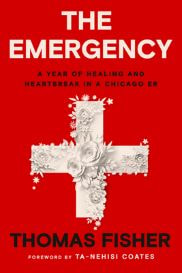
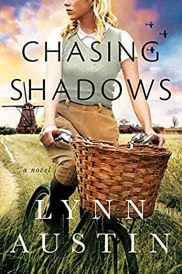
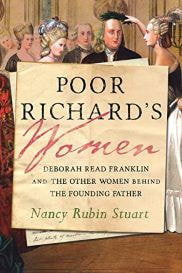
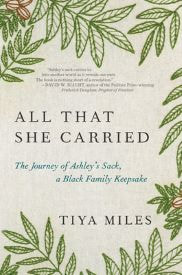
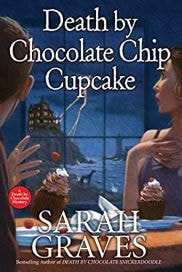

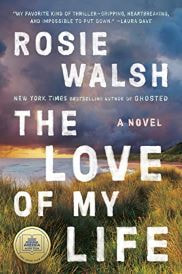
 RSS Feed
RSS Feed